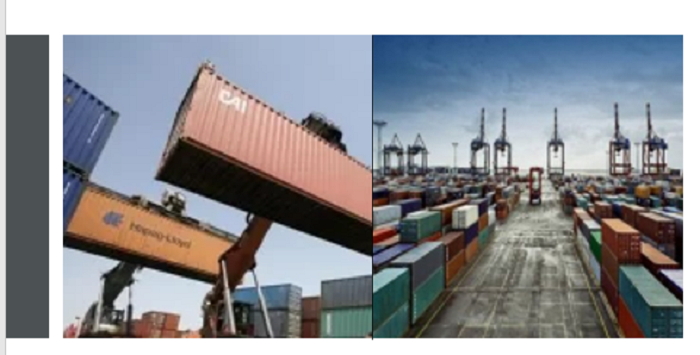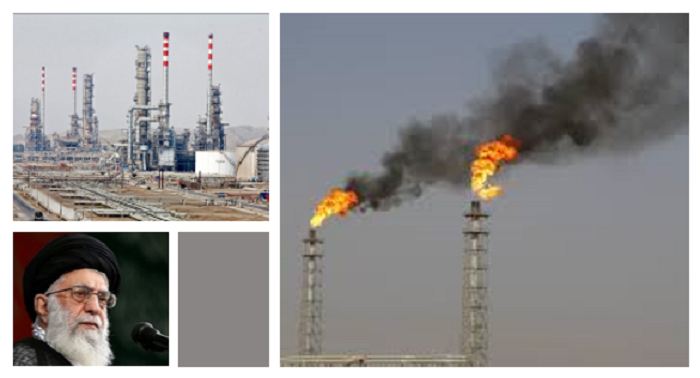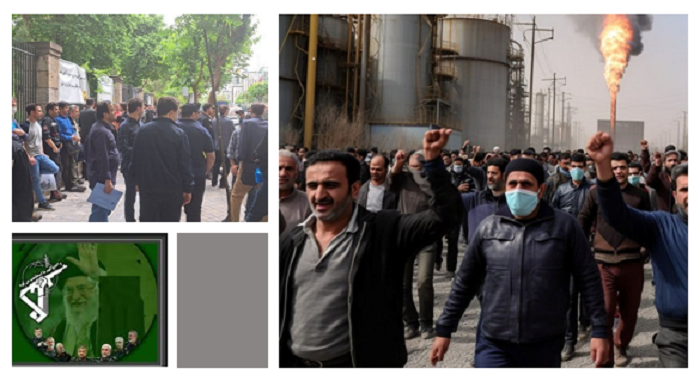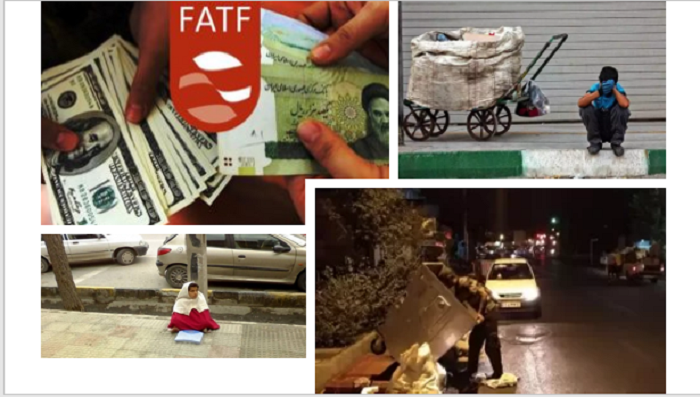
Defying the Joint Comprehensive Plan of Action (JCPOA) sanctions, Raisi projects Iran’s triumphant resurgence in the global oil market. He further claims a remarkable surge of 30-40% in exports for 2022, culminating in an impressive $53 billion.
However, a critical inspection of this 40% increase reveals the following: The Islamic Revolutionary Guard Corps (IRGC) has effectively consolidated its control over several industries and their export businesses. The regime’s figures underscore that the dominant exports are related to oil and petrochemical products.

During a nationwide strike by oil and petrochemical workers, they were cautioned that their actions primarily jeopardize the regime, considering the contracting firms are owned by the Revolutionary Guards’ commanders or their agents.
In a bid to bypass sanctions, the International Petrochemical Trading Company was established with the pledge to reroute its revenues back into Iran. Contrarily, the majority of these revenues have been funneled into repression and terror activities.
A similar strategy is employed in the mining and steel sectors. Industries like Mobarakeh Steel and Khuzestan Steel, under the IRGC Cooperative Foundation, exploit resources and human capital while pocketing profits from exports without funneling the revenue back to the country.

The agricultural and dairy export sector, under the IRGC, has also come under scrutiny. Garnering over $3.5 billion, this practice has sadly resulted in hunger and malnutrition for the Iranian public. The regime’s export ban during harvest seasons reduces prices drastically. The IRGC then capitalizes on these low prices, buying cheap and selling cheap abroad. A glaring example of this exploitation is the vast difference between the local and international prices of apples.
The regime’s tactics, rooted in exploitative policies, serve a singular purpose: to fund repression domestically and terrorism internationally by underselling the nation’s resources. The repercussions of such practices have been dire: skyrocketing living costs, rampant malnutrition, and over 10 million Iranians pushed below the poverty line within a span of a decade.

The regime’s relentless endeavor to prolong its reign through theft and repression might ironically hasten its decline.

MEK Iran (follow us on Twitter and Facebook), Maryam Rajavi’s on her site, Twitter & Facebook, NCRI (Twitter & Facebook), and People’s Mojahedin Organization of Iran – MEK IRAN – YouTu







